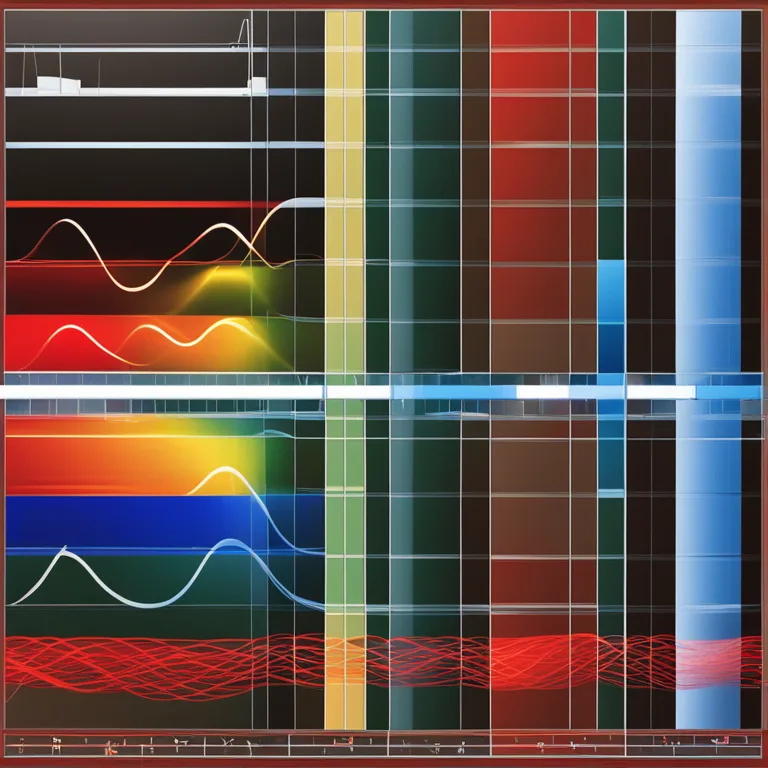
BioRythm Compatibility: Syncing Life's Rhythms Together
Discover how biorhythm compatibility can influence your personal relationships and find harmony with life's natural cycles.
article by Adrian Wallace
Introduction to Biorhythm Compatibility
In the realm of personal well-being, the concept of biorhythms presents a fascinating lens through which we can view our daily lives. Biorhythms are essentially biological cycles that influence various aspects of our physical, emotional, and intellectual states. But have you ever considered how these cycles affect interpersonal relationships? Biorhythm compatibility is the study of how these individual cycles align or clash between two people, potentially shaping the dynamics of their interactions. As we step into 2024, this ancient practice finds new relevance in our search for harmony in personal connections.

The Three Fundamental Cycles
To fully appreciate biorhythms compatibility, one must first understand the three principal cycles: the physical, emotional, and intellectual cycles. These cycles begin at birth and oscillate in predictable patterns throughout one's life. The physical cycle, lasting 23 days, governs vitality and coordination. The emotional cycle, with a 28-day span, influences mood and creativity. Lastly, the intellectual cycle, completing its pattern in 33 days, impacts analytical thinking and decision-making. By charting these rhythms, individuals can anticipate their own peaks and troughs—as well as those of their partners.

Assessing Compatibility through Cycles
If relationships are indeed a dance, then understanding and synchronizing biorhythms can be likened to mastering the steps of a complex routine. By comparing personal cycles with those of a partner, one can identify periods of natural agreement or discord. For example, when both partners are in a high phase of their emotional cycles, they might find deeper empathy and connection. However, if one partner is at a low point in their physical cycle while the other is peaking, they might experience a mismatch in energy levels and needs. Awareness of these patterns can be instrumental in nurturing a more supportive and resilient partnership.

Modern Tools for Biorhythm Tracking
Unlike the analog charts of the past, today's enthusiasts harness sophisticated software and apps to monitor their biorhythms. With technology advancing rapidly in 2024, it has become easier than ever to track these rhythms with precision. Most platforms offer a visual representation of the cycles, making it simple to plan activities and understand potential compatibility with others. Moreover, alerts can be set for critical days when one should be more mindful of potential challenges in communication or well-being.

Applying Biorhythm Principles
Embracing the principles of biorhythm compatibility does not necessitate a belief in fate or destiny. Instead, it calls for an attunement to the natural ebb and flow that exists within and between us. Employing this knowledge in daily life can improve self-awareness, enhance decision-making, and foster empathy within relationships. Whether scheduling important personal discussions, planning activities, or even seeking a sense of solidarity in shared high or low points, understanding biorhythms can provide a valuable context for interpersonal dynamics.
The Skeptic's Viewpoint
Scientific skepticism toward biorhythms persists, with critics pointing to a lack of empirical evidence supporting their influence. While it is true that biorhythm theory is not universally accepted in scientific circles, its principles continue to resonate with those seeking holistic approaches to wellness and relationship management. In the face of skepticism, proponents advocate for an individualized approach where users assess the validity based on personal experiences rather than waiting for conclusive scientific endorsement.
Final Thoughts on Biorhythm Harmony
In conclusion, biorhythm compatibility offers a unique perspective on the interplay between our personal cycles and interpersonal relationships. Whether or not individuals subscribe to their legitimacy, these cycles invite reflection on the natural rhythms that subtly influence our lives. As we look ahead, the integration of biorhythms with personal development practices may continue to gain popularity, providing insights into the harmonious synchronization of our collective human experience.
Published: 12/28/2023
Modified: 12/28/2023
More predictions
Come back here soon to learn more about yourself and your future


Navigating Biorhythm Cycles
Explore the concept of biorhythms, their cycles, and examples of how they influence our daily lives.


The Reality Of Biorhythm Compatibility
Unravel the truth behind biorhythm compatibility and its role in personal relationships and daily life.


Biorhythm Theory: Fact Or Fallacy?
Explore the fascinating concept of biorhythms to discern if there's any scientific accuracy behind this popular belief.